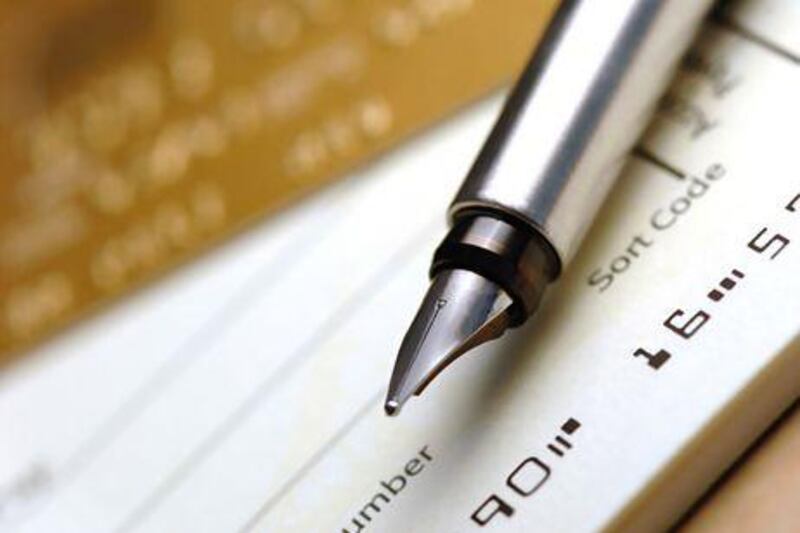A new move to decriminalise bounced security cheques could backfire without a federal credit bureau in place, a top banker has warned.
It comes as other banks point to a rise in Emiratis missing payments on unsecured lending, which includes credit cards and personal loans, ever since a presidential decree immunised Emirati borrowers from going to jail over bounced security cheques.
If they are barred from using cheques as a security measure, banks may become unwilling to lend to individuals, said Rick Crossman, the head of retail banking and wealth management at HSBC Middle East.
"It's not that all lending would stop, but certainly there would be a restriction," he said. "If you start taking out tools to manage the risk without replacing that with something else, just by default you'll have less lending."
A consensus has developed among banks that the UAE must move away from the use of cheques as a payment method, with banks, including Emirates NBD, saying that they support a decriminalisation of cheques for all.
Last year, 1.4 million cheques failed at the point of use in the UAE, representing payments worth Dh46.8 billion (US$12.74bn).
The amount of money returned as invalid upon payment has fallen by 15.3 per cent since 2011, but analysts say the sum - equivalent in total value to a little less than Apple's most recent quarterly net profits - represents an economic dead weight for the country.
Bouncing a cheque is a criminal offence, although Emiratis were immunised from going to jail for writing a bad security cheque as the result of a presidential decree in October.
[ About 1,000 Emirati defaulters have been released from prison since then. ]
The UAE's move towards international standards on cheque defaults required additional measures to strengthen banks' oversight of their lending books, Mr Crossman said.
"We're very supportive of the local laws and we adhere to all local laws," he said. "But we believe there are some infrastructure improvements that need to take place to allow banks to lend in an appropriate way in this market without the use of security cheques."
Bankers agree that the formation of a credit bureau would be a prerequisite before cheques could be decriminalised for all residents.
"I believe what would be an unintended consequence of doing away with security cheques ahead of a robust credit bureau would be that you could potentially see a contraction of lending," Mr Crossman said.
Reluctance on the part of banks to use civil courts has created problems in the past, with criminal action viewed by many lenders as a faster and more effective way of recovering money owed to them.
But dozens of bank customers fled the Emirates during the financial crisis when lenders threatened them with cashing security cheques - potentially leading to jail time - rather than agreeing to renegotiate terms. The result was an increased level of bad debts in the financial system.
If banks aggressively pursued customers, it would likely represent lost business in the future, Mr Crossman added.





